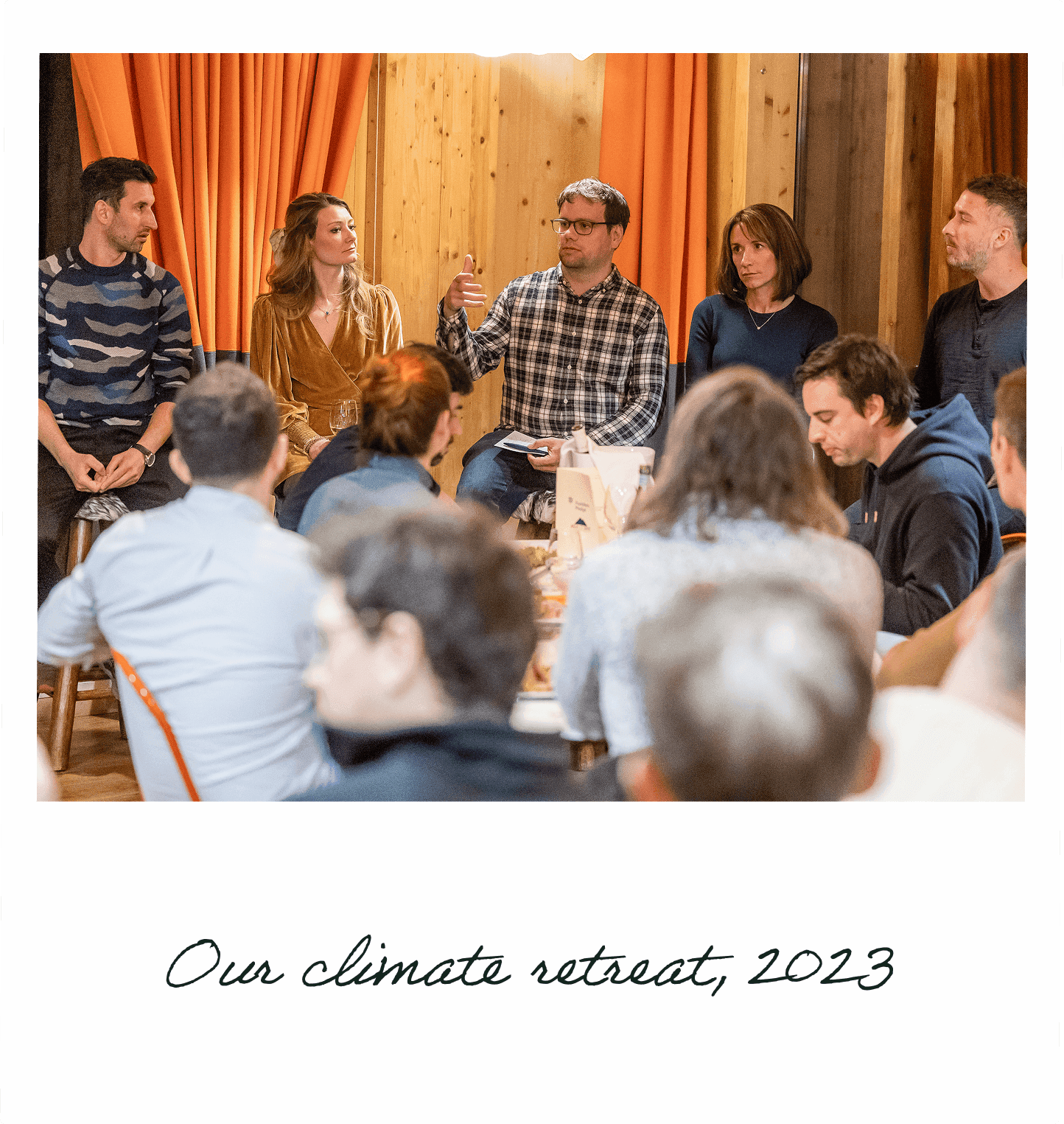


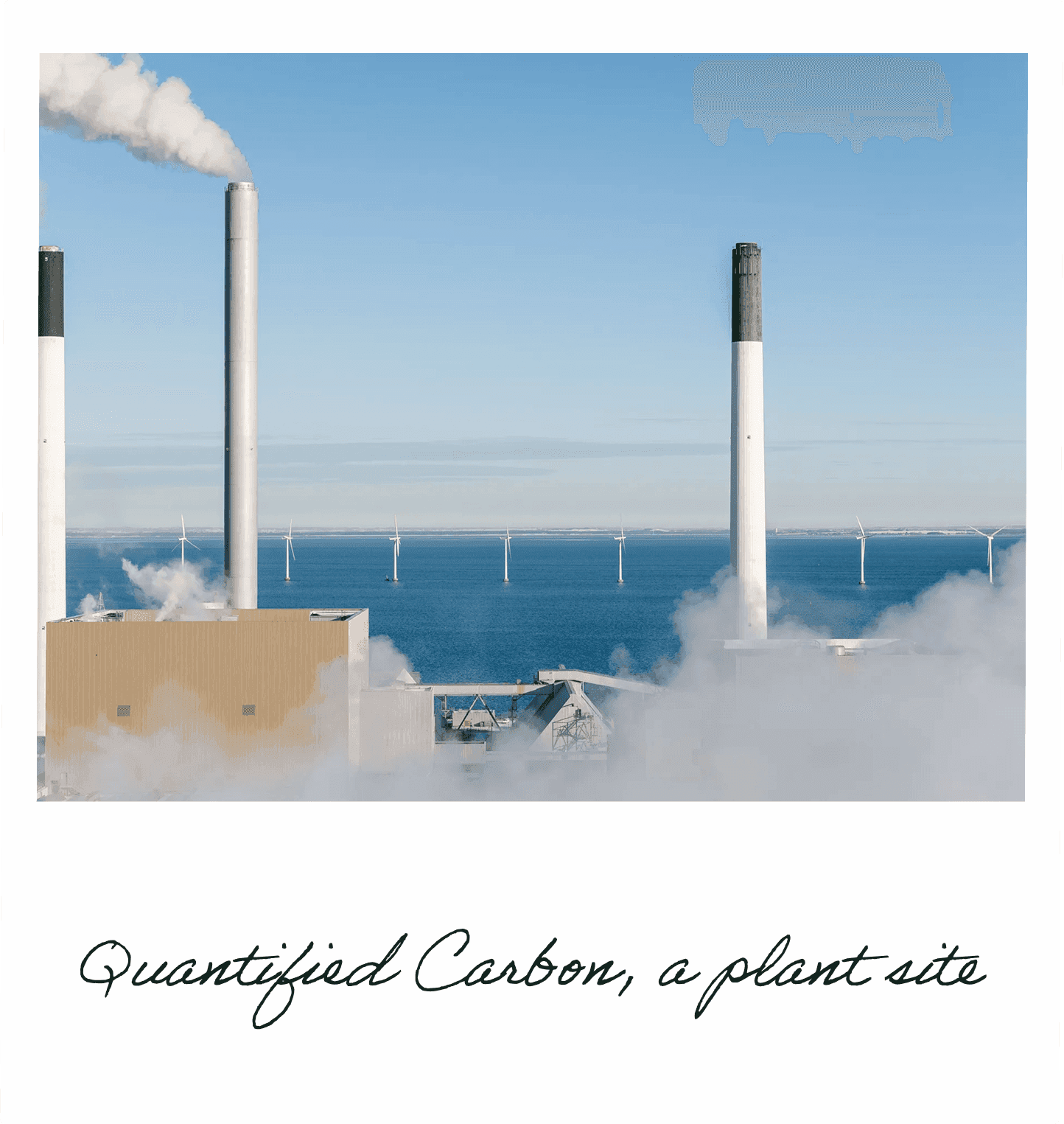




Spotlight on:
Reducing climate change
From rebuilding energy infrastructure to pushing for transformative policy, we prioritize ways to tackle climate change and build a more adaptable world that thinks seriously about the future.
The impact our community has helped create includes:
Building a self-sustaining pro-nuclear grassroots movement with WePlanet to encourage the use of all available clean technologies.
Multiplying the investment made in carbon removal technologies with Carbon180, who advocated for policies that increased the US budget dedicated to R&D.
Producing a digital global geothermal resources and prospecting map with Project Innerspace, making it easy to identify promising locations for pilot programs to be deployed and tested.
Amplifying the Breakthrough Agenda report to spur stronger international collaboration around efforts to meet the Paris Agreement goals with UN High Level Climate Champions.
Accelerating the development of next-generation ultradeep geothermal technologies with the Cascade Institute.
Advancing decarbonization in China and researching coal power with the Institute of Energy, Environment and Economy at Tsinghua University.
Improving how the world fights climate change
Our Climate Fund is building a global climate response that's more robust, diversified, and future-proofed.
The Fund, the main vehicle for our climate work, zeroes in on the most effective ways to tackle climate change as a long-term, global problem. It fills the gaps and blindspots in the mainstream response, and navigates the uncertainties inherent in the climate space to make decisions that prioritize impact.
5,600+
Individual supporters of the Fund
$64.2M
Contributed into the Fund
$29.2M
Granted to high-impact opportunities

This is a pivotal moment for climate. The past year has introduced a flood of new challenges and uncertainties. We are in the middle of what has been dubbed the “decisive decade” for climate action, the period in which we need to take major steps to reduce emissions and avert irreversible climate damage.
This is a time to step up and be strategic. If we agree that time’s running out, we need to act like it. Climate philanthropists can’t cling to old playbooks; we need to adapt our approach and embrace the opportunities and challenges of 2025 and beyond. The Climate Fund is here to navigate the most promising new pathways, and we will continue to be curious, strategic, bold, and laser-focused on impact.
Johannes Ackva
Climate Research Lead & Fund Manager
Accelerating bipartisan climate leadership with DEPLOY/US
Sustained climate policy and action are vulnerable to partisan divides and election cycles, and there's a significant imbalance in resources: in the US, left-of-center climate organizations receive 10x more funding than the right-of-center ecosystem working on climate issues.
We granted $10.5M to DEPLOY/US over 18 months, building up the right-of-center climate and clean energy ecosystem, and broadening coalitions.
DEPLOY/US provides critical research, resources, and coordination to rapidly boost the capacity and impact of the ecosystem, and they quickly directed our funding to a diverse group of more than 20 US nonprofits working on climate and clean energy. The network mobilized conservative constituencies and engaged policymakers at the federal and state levels.
In December 2024, we funded timely support during the transition period, to help the right-of-center ecosystem prepare to work with the incoming Trump Administration and Republican-led Congress.
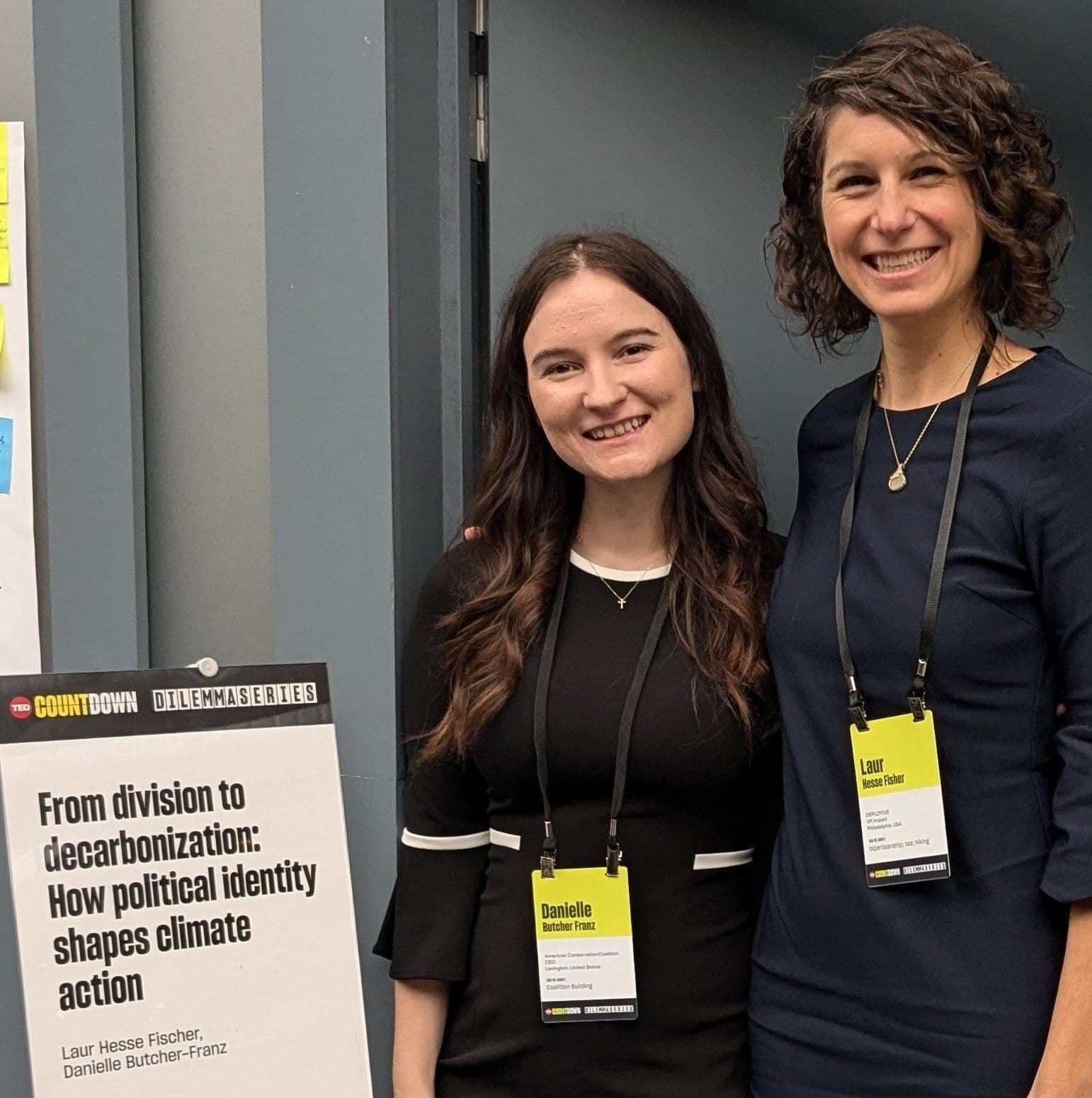
▲ Laur Hesse Fisher (right) from DEPLOY/US led a workshop at TED Countdown. Photo from DEPLOY/US
Increasing transparency with Energy for Growth Hub
One obstacle to expanding clean energy is how energy contracts are managed. In some emerging economies, the secretive process is preventing competition and slowing down the deployment of clean energy.
We granted $1M to Energy for Growth Hub to support their Power Purchase Agreement Transparency Norms Project.
Energy for Growth Hub expanded their scope, working to improve markets in Ghana, Kenya, Malawi, Zambia, Indonesia, and several island nations in the Caribbean. Ghana launched a public register of all active power contracts in 2024, marking a big step towards greater transparency and accountability.
They’ve also collaborated with Extractive Industries Transparency Initiative and the Open Government Partnership, two influential groups whose adoption of electricity contract disclosure can help accelerate progress and standardize transparent practices.
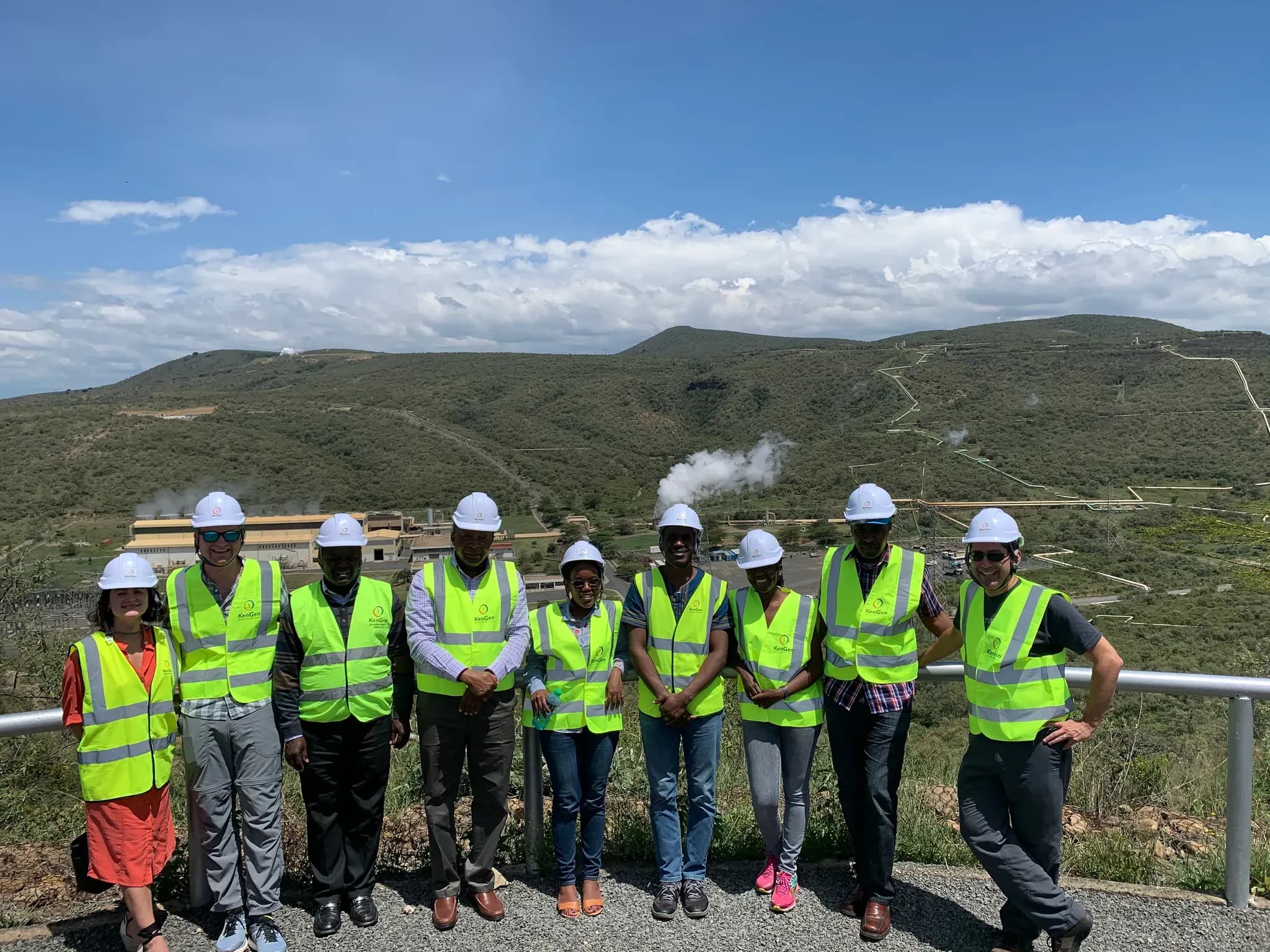
▲ The team working on the ground. Photo from Energy for Growth
Solving for existing high-carbon infrastructure
Reducing emissions without exacerbating energy poverty requires us to scale up low-carbon energy sources.
Transitioning existing infrastructure can be an important piece of the puzzle—coal-fired power plants are responsible for almost 30% of global carbon emissions, which represents the single largest opportunity to reduce carbon.
Our community supports two organizations championing innovative solutions and leading the global, collective effort to produce cleaner energy.
Repowering with Terra Praxis
Founders Pledge members and the Climate Fund have donated $5.5M to Terra Praxis since they launched in 2020, providing seed funding and helping them scale over the years.
Terra Praxis targets the largest sources of global emissions—coal, industrial heat, and heavy transport—and launched REPOWER, an initiative to transition existing coal plants to clean energy sources. With a global consortium of partners — including governments, regulators, academics, and industry stakeholders — they’re designing and implementing fast, low-cost, repeatable solutions.
In 2024, they partnered with the World Economic Forum to integrate nuclear energy into their programs, and at Davos this year launched the Ten-Terawatt Initiative (TTI). TTI is a fundamental redirect in our global energy system to maximize the use of existing infrastructure, triple the world’s energy supply, and create unprecedented global economic growth.

▲ Terra Praxis and Microsoft announce their partnership in support of REPOWER. Photo from Terra Praxis
Repowering with Quantified Carbon
Founders Pledge members and the Climate Fund have donated more than $2M to Quantified Carbon’s Repower Initiative.
Quantified Carbon has developed powerful tools to pave the way for new projects; their RepowerScore maps out the suitability and potential to transition existing coal plants. And they produce resources to support the spectrum of repowering work, from building up the ecosystem to financing to techno-economic assessments.
Their work is spreading around the globe, and are seeing new projects emerge in Chile, the US, and Poland. Thanks to a partnership with the Institut Teknologi Bandung, the Indonesian Government included repowering in its national energy strategy, believed to be the first explicit mention of this solution in government policy. The Polish Government has invested significant resources into repowering, including at Europe's largest coal plant, Belchatow.
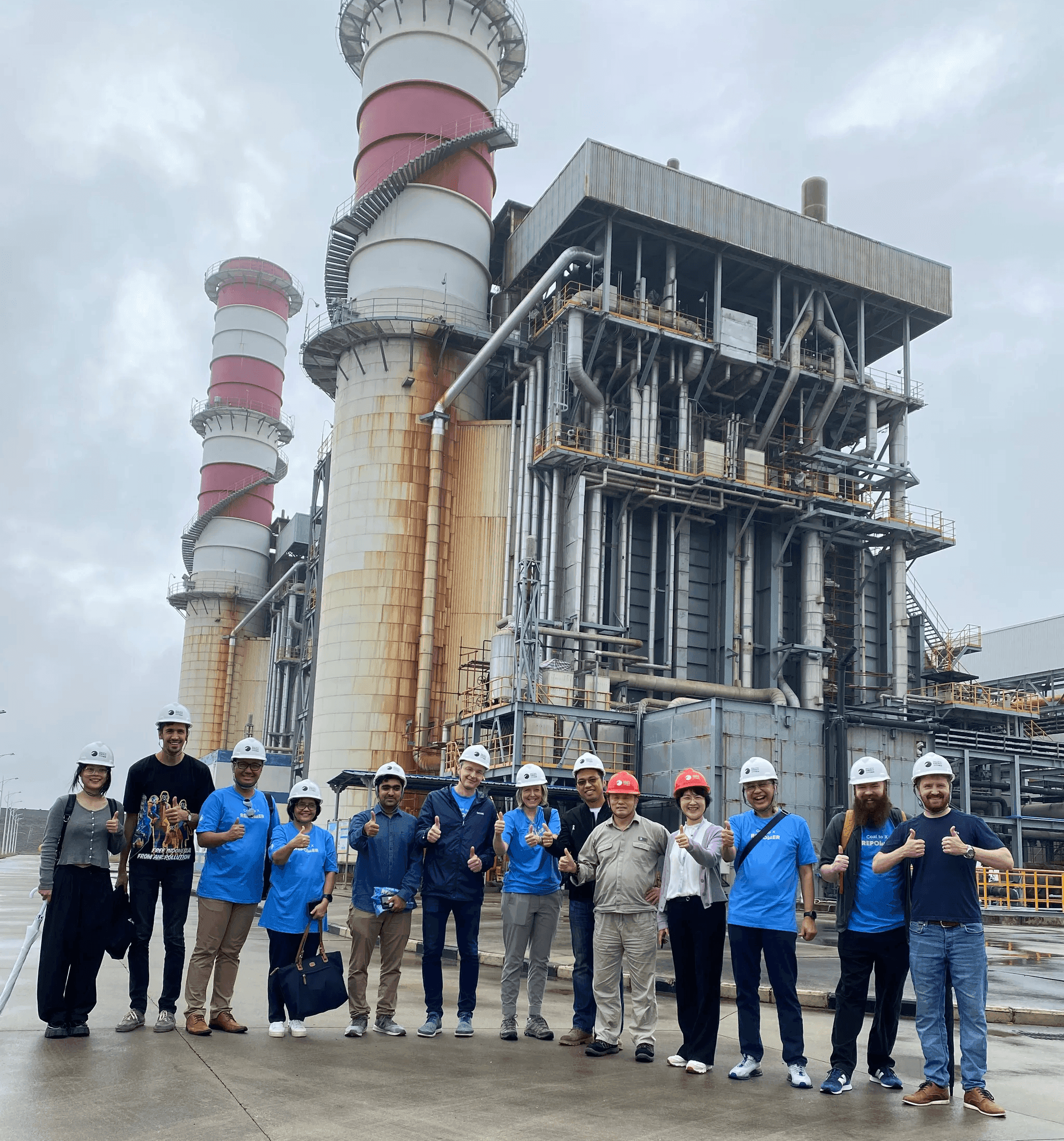
▲ The team on site at a plant. Photo from Quantified Carbon